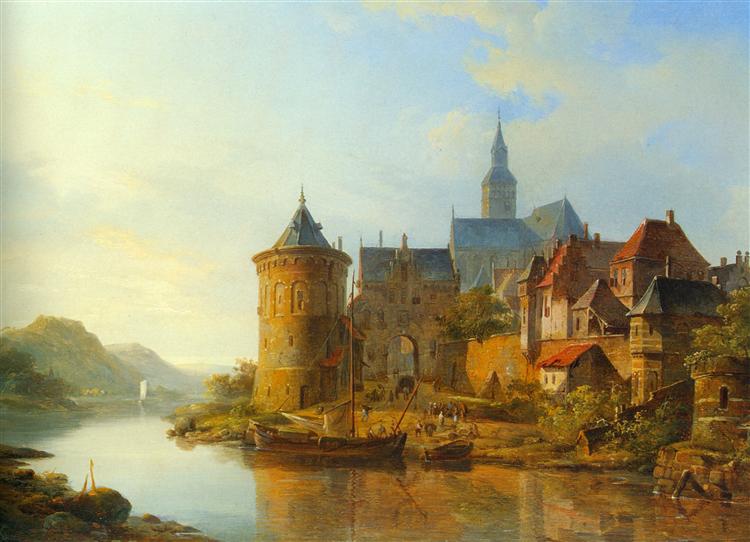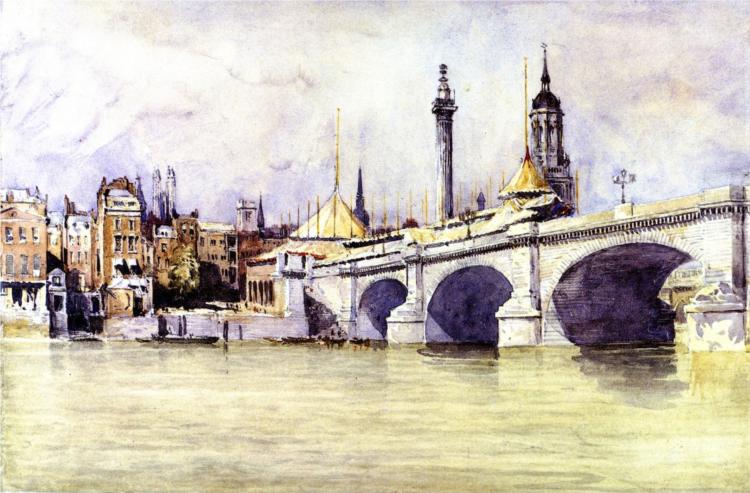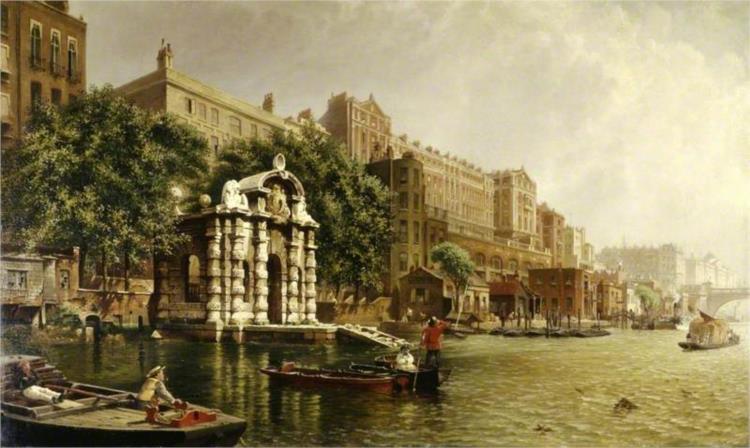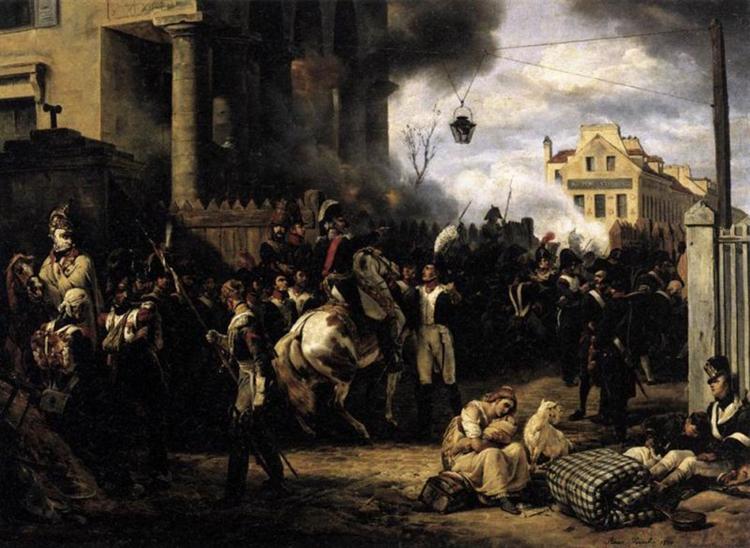Westminster, 4th of March, 1860
“Well, this will certainly get bloody before it is over”
“Indeed Sir. I thought you might want to know before the papers find out tomorrow morning”
William Burns slumped into his chair. He had heard rumours of unrest in the Hapsburg Empire for several weeks now, but with the news that the Hungarians had declared independence, it suddenly appeared to be a rather unfortunate time to be Foreign Minister.
He turned to his underling. “Does anyone else in the cabinet know yet?”
“Not quite yet, I believe it is your prerogative sir. If you want me to…”
“No. It is already rather late in the evening, and I do think even the Prime Minister will have retired by now. I need to collect myself”
“Will that be all?”
“Yes, thank you Richard”
Richard nodded in acknowledgement and left the room. As soon as he was sure he was alone, Burns shambled over to his cabinet and poured himself a brandy. He was not accustomed to drinking this late at night, but nor was he accustomed to receiving bad news so late.
“There will be war, I am certain. But who will fight who? Will the Russians support the Hungarians? The French? Who do we support?”
His head was swimming before he even took a sip of his drink. He took one quick shot, downing the contents of the glass.
“I feel quite drunk already”
Burns shambled once again up his stairs to bed. There was a long, long day ahead of him.
* * * * * *
Although almost seventy years of age, the Hero of Regensburg still had the upright bearing of a true soldier. His stiff and rigid posture belied the flexible character which had won him fame and seen him exiled from his native Austria. For a year now he had been far away from Vienna, living in a nondescript house in Belgravia. While his excellent English and reputation as a Francophobe had won him some admiration from the London Society, his somewhat haughty but typically Hapsburg demeanour had distanced him somewhat.
But he was visiting Downing Street today not for a social occasion, but for the morning’s news that the Austrian Empire had split. The British Prime Minister, Edward Colne, had reportedly flung himself into a panic at the news that Britain’s main continental partner was descending into chaos, and the Foreign Secretary Sir William Burns had turned to the former Archduke Franz Karl partially to make sense of the situation in Austria, but partially to see what Franz Karl was planning personally.
“Thank you for joining us on such short notice your highness, perhaps I can have tea brought?”
Franz Karl smiled. “Coffee would be most welcome”
The Prime Minister nodded at the attendant. “Please, do take a seat. I trust you have read the morning papers?”
“An expected turn of events. Some of the more radical elements amongst the Hungarians have been anticipating this for years”
“So perhaps your brother is prepared for this turn of events?”
Franz Karl scoffed. “He would struggle to prepare for breakfast, let alone an uprising amongst the Hungarians. His chancellor though”
“The Count of Burgenland?”
“Yes, that’s the one. New blood I presume, I must confess that I am not familiar with him from my days in the court. I suppose we shall see the quality of this new Chancellor in the weeks to come”
“But” Franz Karl thought,
“I bet the man is a fucking peacock, prim and proper but no substance beyond the show if I know the kind of official my brother likes”
Prime Minister Colne nodded. Did he sense something hidden within Franz Karl? Jealousy? No, a man with as much experience as him was far beyond jealousy, it seemed like something else. Disappointment, despair, and perhaps frustration? This seemed to be closer to the truth.
“And what about this leader of the Hungarians, Lajos Somogyi I think? We do have a few files we had gathered while he was in living in Paris, but we didn’t quite suspect that he was leading this movement”
Burns interjected “Some of us in the foreign office think he may be something of a compromise candidate, a figurehead if you will. Many among the Young Hungarians disagree with the ideas held by others in their movement. For a while, we were convinced that they would tear themselves apart, but with his majesty removed from the picture, I suppose they thought it was a good time to strike”
Franz Karl nodded his head in agreement “What he said seems to be the consensus of men in the know in Vienna as well. If the Hungarians are disunited for now, it may not last if the Austrian army comes to put down their insurrection”
Colne stood up from his chair, and paced slowly away from the two men, turning his back as if frightened of his next question “So, you both think we have something to fear here?” He turned, to see both men nodding, filling the room with an eerie silence.
* * * * * *
The Dawn of the 1860 Revolutions
Tensions had steadily built up in Hungary throughout the 1850s. Both between the Austrian Government and the Hungarian Nationalists, as well as between the Hungarian Nationalists themselves. While the more extreme wing wished to break up the Austrian Empire entirely, replacing it with smaller nation states, those on the other end of the National Liberal spectrum wished to see the Centralist Austrian Empire replaced with a confederation of different nationalities, led by the Hungarians but with wide liberties for all peoples. In Vienna, the majority of the court wanted to deal harshly to any challenge of Hapsburg rule, and although some more far-sighted leaders such as Archduke Franz Karl attempted to moderate the policies of the government, the policy towards the Young Hungarians and their affiliated parties such as the Young Czechs and the Romanian Nationals. Thousands were imprisoned or exiled in a forlorn attempt to stem the nationalist tide, but the absolutism of the Hapsburgs only pushed the nationalities toward aspirations of independence. Following the suppression of the 1855 riots, even German-speaking Liberals began to gravitate more toward the informal groupings of the Liberal Nationalists throughout the Empire than toward the autocratic but German-speaking Monarchy.
For those left in the court who wanted to avoid what they saw as an impending revolution, hopes became dimmer. When the Archduke Franz Karl presented a report which argued for the implementation of fairly weak regional parliaments elected by universal suffrage, the moderates in the Austrian court had moved beyond the pale of what the Emperor was prepared to tolerate, and the Archduke was exiled to London. For the moderate National Liberals across the Empire, this was a signal that any hope of compromise was a futile one, and the movements for independence were given much in the way of momentum. The Hungarians unilaterally elected a parliament in the winter of 1859, and were followed in 1860 by the Czechs and the Croatians. Finally, the situation exploded in the March of 1860, when the Hungarian Parliament declared independence from Austria, creating an enormous rift in the Middle of one of Europe’s great powers. For almost a week, there was no reaction from Vienna, and Hungarian units deserted the K.U.K Army until the Emperor finally condemned the Hungarian “rebellion”, promising quickly to put an end to the “insurrection”.
However, amongst the other peoples of the Empire, sympathy lay with the Hungarians. The new Hungarian state had been articulating an alternate vision for the smaller nations of Central Europe, envisioning a loose union which provided for the common defence, but which enabled national aspirations to be realised. The Croats, already inspired by the example of their South Slavic cousins in Serbia and Bulgaria in creating Nation-States, joined the Hungarian-dominated “Confederation of the Danube” on the 12th of June, 1860, and were followed by Slovakia on the 29th of June, Silesia on the 10th of July and by Romania on the 1st of August. The Hapsburg Monarch now appeared to be on the verge of disintegration, and on the 10th of August, a full-blown revolution began on the streets of Vienna, calling for the deposition of Emperor Karl. The Austrian Empire, the “Gendarme of Europe” just months before was now on the verge of total collapse, its Empire torn away from it and its people desperate for change. A storm was enveloping Europe, and it had begun in Hungary.
* * * * * *
Marylebone, 18th of August, 1860
“So, I must ask you Franz, what are you plotting here?”
“Plotting?”
Burns had a wry smile across his face. “In the years I have known you here and in Vienna, I’ve never known you not to have some plan forming”
Franz Karl shrugged. “I’m an old man by now, and I think my good will among the court in Vienna is spent. I admit, I would like to have some kind of conspiracy to move the direction of events towards a place that I would want, but I am afraid that these days, I lack the ability”
“Well, I am privy to some information that may be of interest to the ‘Hero of Regensburg’, as it were”
“Oh?”
“Yes, my sources within the Schönbrunn tell me that your brother is planning on abdicating. Leaving in charge his eighteen year old son…”
Franz Karl’s face turned into an uncharacteristic smile, which he immediately tried to hide from his face. “Leaving in charge his eighteen year old son, who is perhaps the only one of my relatives who I am glad to know”
“So there is a chance for you to go back?”
“Now that would depend on how the court would see it, I can understand that some would be resentful, or suspicious of the overbearing uncle stepping out from the shadows”
“But surely your nephew would appreciate your presence, and your advice”
“Yes, that much is true”
“There are those in the Foreign Office who would certainly appreciate a strong friend of Britain once again as a voice in Austria”
Franz Karl had much to think about. If he returned to Austria, he would expose himself to risk. His reputation could be destroyed, his life would be at stake. But if he stayed? He dared not admit it, but the pull of his dynasty was true strong. The Hapsburg Monarchy had to be saved, even from itself.
* * * * * *
The Revolution Spreads
With all the tensions that had built up in Europe since the end of the last great coalition conflict, it was inevitable that individuals, groups and even nations would use the instability created by the Austrian Collapse to settle long-held scores and revise the settlement of the conflict. It only took two months after the declaration of Hungarian Independence for the revolution to spread to Venice, where once again the Medieval Republic headed by the Doge was unseated in a Nationalist uprising. This was an event that had been anticipated by the diplomatic circles of Europe, aware of the unpopularity of the Venetian Government, but more surprising were the mounting tensions in Germany. For three decades, the remnants of the old order in Germany had kept a lid on nationalist and liberal movements, but with these groups making progress in the rest of Europe, the pressure within Germany became too much to resist. In Prussia, troops were ordered to fire on demonstrators in Konigsberg, but refused. This led to the slaughter of Prussian officers, and the unprecedented warning to the King that the army could not be guaranteed to protect his person. The Prussian king fled to exile in Paris on the December of 1860s, the first German King to be unseated by revolutionary sentiment.
He would not be the first. In February, the Kings of Saxony and Hesse were next to be dethroned, and in March the King of Bavaria was hung from the balcony of his palace. Similar fates met the princes and rulers of the smaller German states, and there was an initial fear that Germany would descend into anarchy. This was the point at which the National Liberals came in, attempting to stem the growing chaos in Germany by convening a German Parliament once again, in direct contravention of the treaty which had ended the last war. Initially, a French mobilization was dissuaded, with the interim German Prime Minister warning the French that the Second Frankfurt Parliament was all that was holding back the spectre of a properly leftist revolution in Germany and general war in Europe. The armies that had refused to protect their kings could stomach protecting a democratic parliament, and swore allegiance to the government in Frankfurt, which felt secure enough to declare a German Republic in the May of 1861. For the moment, the situation in Germany appeared to be stabilising, and it looked as though Europe would not descend into a general war as feared by some.
However, only two months later, revolutionary sentiment spread to Italy. The “Red Shirts” of the Italian Republican Guerrilla Francesco Raimondo launched a lightning campaign against the Piedmontese King, quickly overcoming the demoralised Piedmontese army and declaring an Italian Republic in Milan
[1]. The spectre of radical republicanism, curbed somewhat by the moderation of the Frankfurt Parliament, once again struck fear not only in France, but in Austria and Britain too. Alongside a heightening of tensions between Austria and Hungary, Europe in the July of 1861 was very much on the brink of a war the likes of which had not been seen in decades.
[1] – Raimondo of course is a fairly distant cousin of OTL’s Giuseppe Garibaldi. We are going on the assumption here that some of Garibaldi's awesomeness must have been genetic.
* * * * * *
Author's Notes - And the stage is set for a resumption of a general European War. Austria is falling apart at the seams, Northern Italy is united under a Republican regime and the Ancien Regime cannot fight the revolution through fear of each other's motives. Although France may not have fell to revolution in the 1790s, Europe may still choke on the revolutionary spirit. We may also begin to see a decoupling between Nationalists and Liberals depending on how things go. Either way, Europe is going to see a lot of change.







